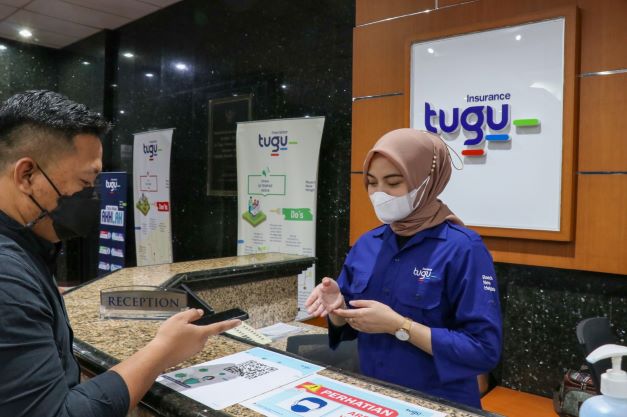
PT Asuransi Tugu Pratama Indonesia Tbk (Tugu Insurance) menyambut antusias peningkatan sektor properti Indonesia. Walaupun ketika awal pandemi Covid-19, bisnis properti memang sempat mengalami penurunan. Membaiknya sektor properti memang tak lepas dari mulai membaiknya perekonomian Indonesia dan daya beli masyarakat sejak melandainya pandemi Covid-19.
Perusahaan asuransi umum yang berpengalaman selama 41 tahun itu menjadikan asuransi properti menjadi salah satu lini bisnis andalannya. Produk asuransi properti ini memang banyak diminati, apalagi memang ditujukan untuk menanggung risiko kerusakan pada bangunan, akibat terjadinya hal-hal yang tak diiinginkan.
Asuransi properti Tugu Insurance dapat menjamin kerusakan pada bangunan industri maupun non industri. Untuk bangunan industri yang bisa dijamin misalnya pabrik, gudang, SPBU, toko, mall dan lainnya. Sedangkan untuk bangunan non industri seperti rumah tinggal, apartemen, kantor, rumah sakit, sekolah maupun kampus juga mendapat jaminan apabila memang terjadi kerusakan pada bangunan akibat hal-hal yang tidak diinginkan seperti kebakaran, gempa bumi, banjir atau bencana alam lainnya.
Tatang Nurhidayat, Presiden Direktur Tugu Insurance menyebutkan, saat ini asuransi properti di Tugu Insurance memang mengalami peningkatan dari sisi pendapatan premi. Sebagai catatan, Tugu Insurance mencatat total produksi premi bruto konsolidasian hingga Kuartal III-2022 senilai Rp 4,73 triliun, naik 10% dibandingkan 2021 sebesar Rp 4,28 triliun. “Pada periode ini class of business (CoB) fire & property masih memberikan kontribusi produksi premi terbesar yakni Rp 1,76 triliun naik 25% bila dibandingkan periode yang sama tahun lalu Rp 1,41 triliun,” jelas Tatang seperti dikutip SWA Online pada Jumat (3/2/2023).
Data Asosiasi Asuransi Umum Indonesia (AAUI) juga menyebutkan pertumbuhan premi dari sektor properti paling tinggi baik dari sisi premi maupun pertumbuhan pada kuartal III/2022. Rinciannya adalah secara persentase asuransi properti tumbuh 30,7% dibandingkan periode yang sama tahun sebelumnya. Sedangkan dari jumlah premi yang masuk naik dari Rp15,73 triliun menjadi Rp20,57 triliun.
Tugu Insurance berinovasi untuk mengembangkan berbagai produk dan





